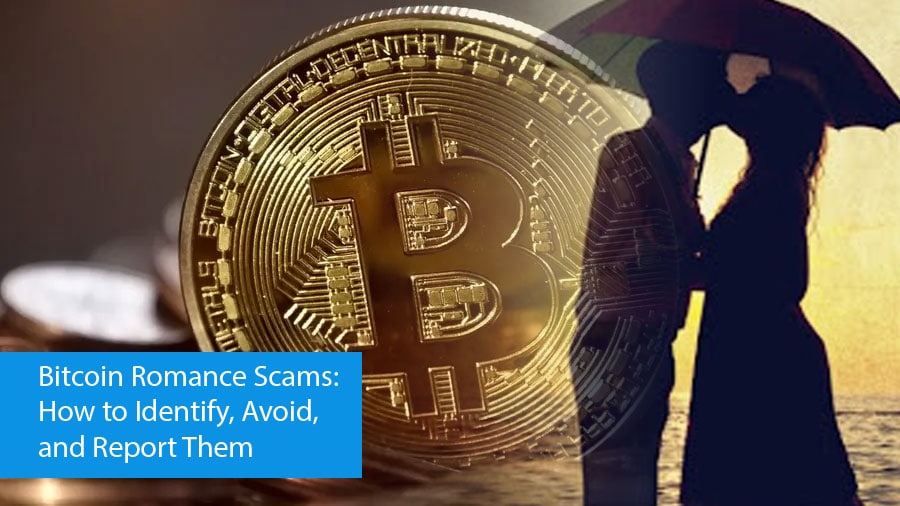1. What Are Bitcoin Romance Scams?
Bitcoin romance scams occur when a scammer establishes a fake online relationship with the intent to steal cryptocurrency from the victim. These scammers typically operate on dating apps, social media platforms, or even through emails. They create a sense of intimacy and trust, eventually asking for Bitcoin or other cryptocurrencies under various pretenses, such as financial emergencies, investment opportunities, or gifts.
2. How Bitcoin Romance Scams Work
Here’s a step-by-step look at how these scams typically unfold:
- Initial Contact: The scammer reaches out to the victim on a dating site, social media platform, or via email. They often use fake profiles with stolen photos to create a convincing persona.
- Building Trust: Over weeks or even months, the scammer engages in frequent and intimate communication, building an emotional connection with the victim. They may share personal stories, discuss future plans together, and express strong feelings of affection.
- The Ask: Once trust is established, the scammer fabricates a crisis or opportunity that requires money. Common scenarios include medical emergencies, travel expenses, legal troubles, or urgent investment opportunities. They often request Bitcoin because it’s harder to trace and recover than traditional money transfers.
- Pressure and Manipulation: If the victim hesitates, the scammer may apply emotional pressure, guilt-tripping them, or threatening to end the relationship if they don’t help. This manipulation is designed to push the victim into sending the requested Bitcoin.
- Disappearance: After receiving the Bitcoin, the scammer may continue to ask for more until the victim runs out of money or becomes suspicious. Eventually, the scammer will disappear, leaving the victim with emotional and financial losses.
3. Common Signs of a Bitcoin Romance Scam
Here are some red flags that may indicate you’re dealing with a Bitcoin romance scam:
- Fast-Tracked Affection: If someone you’ve never met in person quickly expresses strong emotions or love, it’s a significant red flag. Scammers often rush the relationship to build trust quickly.
- Reluctance to Meet in Person: The scammer may always have excuses for why they can’t meet in person or video chat. They may claim to be working overseas, in the military, or facing travel restrictions.
- Unsolicited Financial Requests: Any request for money, especially in the form of Bitcoin, is a major warning sign. Scammers often create elaborate stories to justify why they need cryptocurrency instead of traditional money transfers.
- Inconsistent Stories: Pay attention to inconsistencies in their stories, such as details that don’t add up or changes in their personal background.
- Requests for Personal Information: Scammers might also try to gather personal information that could be used for identity theft or further fraud.
4. How to Protect Yourself from Bitcoin Romance Scams
Here’s how to protect yourself from becoming a victim:
- Be Skeptical of Quick Romance: Genuine relationships take time to develop. Be wary of anyone who quickly professes deep feelings for you, especially if you’ve only communicated online.
- Verify Identities: Do some detective work by reverse-searching their profile photos or details they provide. Often, scammers use stolen photos and identities that can be traced back to other fake accounts.
- Avoid Sharing Financial Information: Never share your financial details, including cryptocurrency wallet information, with someone you’ve only met online.
- Don’t Send Money: No matter how convincing their story may be, avoid sending Bitcoin or any other form of money to someone you haven’t met in person.
- Trust Your Instincts: If something feels off or too good to be true, it probably is. Listen to your gut feelings and seek advice from friends or family before making any decisions.
5. How to Report a Bitcoin Romance Scam
If you believe you’ve been targeted or have fallen victim to a Bitcoin romance scam, it’s essential to take action:
- Cease All Communication: Stop communicating with the scammer immediately. Block them on all platforms and report their profile to the service you met them through.
- Document Everything: Keep records of all communications, including emails, messages, and transaction details. This documentation will be crucial when reporting the scam.
- Report to Law Enforcement: Contact your local police or cybercrime unit and provide them with all the information you’ve gathered. While recovery is difficult, law enforcement agencies are increasingly aware of these scams and may offer assistance.
- Report to Federal Agencies:
- In the U.S., you can report the scam to the Federal Trade Commission (FTC) at reportfraud.ftc.gov and the Internet Crime Complaint Center (IC3) at www.ic3.gov.
- In the U.K., report the scam to Action Fraud at www.actionfraud.police.uk.
- Notify Cryptocurrency Exchanges: If the transaction occurred through a specific cryptocurrency exchange, report the incident to their fraud department. Some exchanges may be able to freeze funds if reported quickly enough.
- Seek Support: Falling victim to a scam can be emotionally taxing. Consider seeking support from friends, family, or professional counseling services.
- Raise Awareness: Share your experience on social media or in online forums dedicated to cryptocurrency and online dating scams. Raising awareness can help prevent others from falling victim to similar scams.
Conclusion
Bitcoin romance scams are a blend of emotional manipulation and financial fraud, preying on those looking for love online. By staying vigilant, trusting your instincts, and knowing the signs, you can protect yourself from becoming a victim. If you do fall prey to a scam, prompt reporting and documentation can help authorities track down the perpetrators and prevent future scams.

